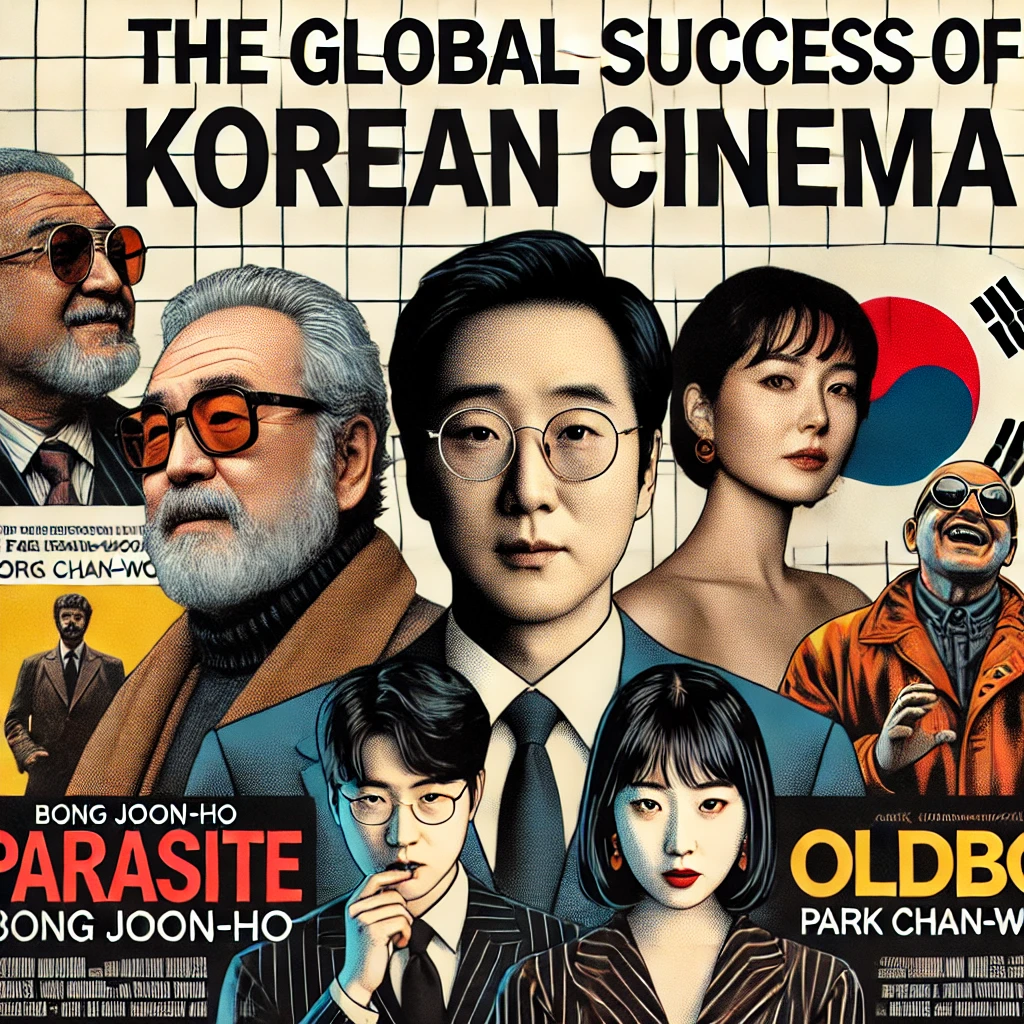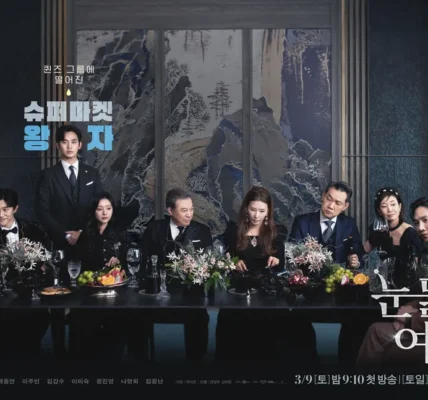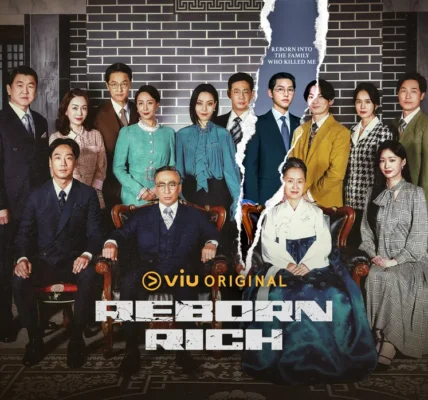The Global Success of Korean Cinema: From Bong Joon-ho to Park Chan-wook
Over the past two decades, Korean cinema has experienced a meteoric rise on the global stage. Films from South Korea have not only gained international recognition but have also garnered prestigious awards, influenced global filmmakers, and sparked discussions about the art and craft of filmmaking. Directors like Bong Joon-ho and Park Chan-wook have played pivotal roles in putting South Korean cinema on the map, creating stories that resonate deeply with audiences around the world.
This article will explore the key reasons behind the global success of Korean cinema, focusing on the contributions of Bong Joon-ho and Park Chan-wook, along with the broader cultural and industry-related factors that have shaped the Korean film industry’s ascent.

1. Unique Storytelling: Blending Genres and Themes
One of the hallmarks of Korean cinema is its ability to blend genres seamlessly. South Korean directors are known for crafting films that defy conventional genre boundaries, mixing elements of drama, thriller, comedy, and horror, often within a single movie. This unique storytelling approach captures the complexities of human experience and draws in international audiences.
Bong Joon-ho: Master of Genre Hybridization
Bong Joon-ho’s films are prime examples of how genre-bending storytelling can elevate a movie. His 2019 masterpiece “Parasite” is a perfect case in point. While the film starts as a dark comedy about class inequality, it quickly evolves into a suspenseful thriller with moments of shocking violence. This unpredictable narrative style keeps audiences engaged and allows for deeper thematic exploration.
Park Chan-wook: Visual Mastery and Genre Experimentation
Similarly, Park Chan-wook is celebrated for his bold use of genre experimentation. His 2003 film “Oldboy”—part of the Vengeance Trilogy—fuses elements of revenge thriller, mystery, and drama. It features striking visuals, elaborate fight scenes, and intense psychological depth, pushing the boundaries of traditional genre films. This combination of genres challenges viewers while keeping them captivated.
Why It Matters:
The global audience’s appetite for innovative storytelling has grown, and Korean cinema’s ability to deliver unique, genre-bending narratives makes it stand out in a crowded market. This willingness to break conventional genre molds has allowed South Korean films to capture the imagination of critics and moviegoers alike.
2. Strong Social and Cultural Themes
Korean filmmakers are not afraid to tackle difficult and sometimes controversial social themes, often using their films as a mirror to reflect societal issues. Many South Korean films delve into themes of class inequality, corruption, revenge, and family dynamics, providing nuanced commentary on contemporary life in Korea.
Class Struggles in Parasite
Bong Joon-ho’s “Parasite” is perhaps the most well-known example of a film that addresses class struggles in a poignant and universally relatable way. The film’s sharp critique of economic inequality, combined with its darkly comedic tone and surprising plot twists, earned it widespread critical acclaim. “Parasite” became the first non-English language film to win the Academy Award for Best Picture, highlighting the universality of its themes.
Park Chan-wook’s Exploration of Vengeance
Park Chan-wook often explores the theme of vengeance, but his approach is far more complex than simply portraying revenge as a form of justice. In films like “Oldboy” and “Lady Vengeance”, Park delves into the psychological toll of revenge on both the victim and the perpetrator, offering a more nuanced and layered examination of the consequences of violence.
Why It Matters:
By focusing on universal themes like class inequality, morality, and revenge, Korean films resonate with global audiences. These films provide insights into Korean society while also speaking to broader human experiences, making them relatable to viewers from different cultural backgrounds.
3. Visually Striking Cinematography and Art Direction
Korean cinema is also known for its visually stunning cinematography and meticulous attention to art direction. Directors like Bong Joon-ho and Park Chan-wook work with highly skilled cinematographers to create films that are as visually compelling as they are thematically rich.
Bong Joon-ho: Detailed and Symbolic Visuals
In “Parasite,” Bong Joon-ho uses visual metaphors to symbolize class divisions. The architectural design of the wealthy family’s home contrasts sharply with the cramped, sub-basement apartment of the struggling Kim family. This visual dichotomy reinforces the themes of social inequality present throughout the film.
Park Chan-wook: Master of Visual Storytelling
Park Chan-wook’s films are known for their stylized, hyper-real visuals. “The Handmaiden” (2016) is a perfect example of this, with its lush, detailed set designs and vibrant color palettes. Park’s use of camera angles, lighting, and color elevates the tension in his films, creating a cinematic experience that is both beautiful and emotionally charged.
Why It Matters:
The global success of Korean films can also be attributed to their visual sophistication. Audiences are drawn to films that not only tell a compelling story but also offer a rich, immersive visual experience.
4. International Film Festival Recognition
Korean cinema has been making waves on the international film festival circuit for years, and this recognition has played a significant role in bringing South Korean films to a global audience.
Bong Joon-ho’s Impact at Cannes
Bong Joon-ho’s “Parasite” won the prestigious Palme d’Or at the 2019 Cannes Film Festival, the first South Korean film to receive this honor. The film’s success at Cannes helped propel it to global fame, leading to its historic Oscar win the following year. Bong’s earlier works, such as “The Host” and “Snowpiercer”, also gained international attention through festival screenings.
Park Chan-wook’s Awards at Cannes
Park Chan-wook has also been a frequent presence at Cannes. His film “Oldboy” won the Grand Prix at the 2004 Cannes Film Festival, cementing his reputation as a world-class director. Park’s 2016 film “The Handmaiden” received widespread acclaim, further showcasing the strength of Korean cinema on the global stage.
Why It Matters:
International film festival recognition not only introduces Korean films to a broader audience but also establishes South Korean directors as major players in the global film industry. The success of these films at Cannes, the Oscars, and other prestigious festivals has helped solidify Korean cinema’s reputation worldwide.
5. The Global Reach of Streaming Platforms
With the rise of streaming platforms like Netflix, South Korean films have become more accessible to a global audience. Streaming services have played a crucial role in introducing international viewers to Korean content, offering subtitles and making these films easily available worldwide.
The Netflix Effect
Netflix has invested heavily in Korean content, both in films and TV shows. Films like “Okja” (directed by Bong Joon-ho) and “The Call” have reached a global audience through Netflix’s platform. The availability of these films on a streaming service with a vast international reach has significantly boosted the popularity of Korean cinema.
Why It Matters:
Streaming platforms provide filmmakers with new distribution channels, allowing Korean films to reach audiences far beyond their domestic market. This accessibility has helped solidify the global appeal of South Korean films.
Conclusion: The Universal Appeal of Korean Cinema
The global success of Korean cinema is no accident. It is the result of visionary directors like Bong Joon-ho and Park Chan-wook, who have mastered the art of genre blending, visual storytelling, and tackling complex social themes. Their films resonate with audiences not only in Korea but across the world, thanks to their universal themes and striking visuals. With the continued support of international film festivals and streaming platforms, the future of Korean cinema looks brighter than ever.









